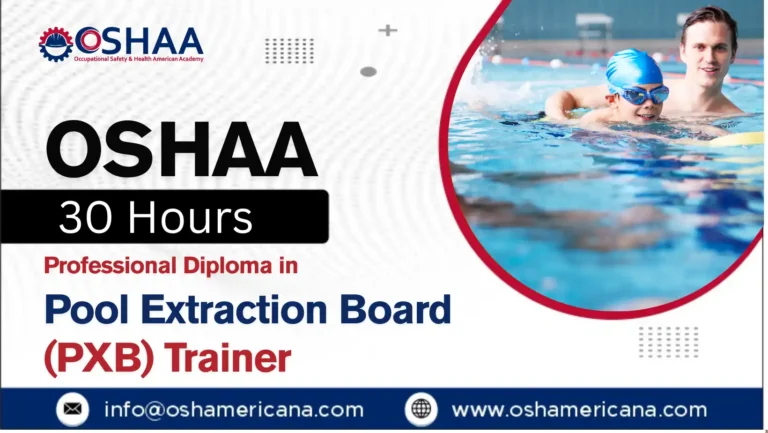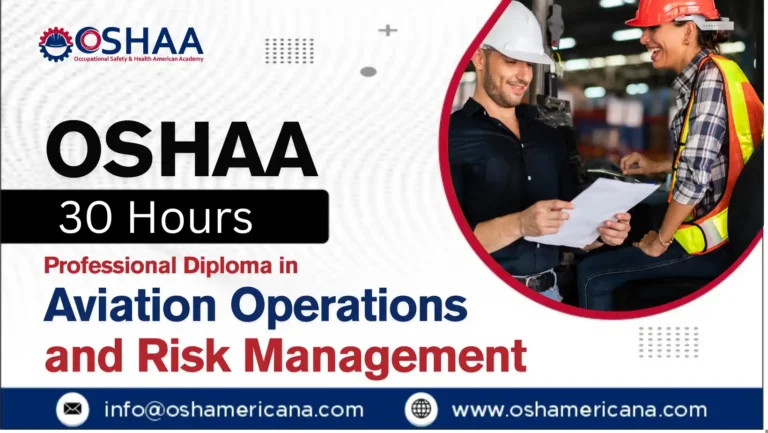Ensuring the safety and well-being of children in care settings is a critical responsibility for child care providers. The OSHAA 30-Hours Professional Child Care – Health and Safety course is specifically designed to equip professionals working with children with the knowledge and skills needed to maintain a safe and healthy environment. This course focuses on a range of key topics, from recognizing health risks to understanding child care legislation, providing child care workers with essential tools to promote safety and well-being in their settings.
Health and safety are paramount in child care settings. Whether you’re working in a nursery, daycare, or as a private childminder, ensuring the safety of children is not just a legal requirement but a moral obligation. Accidents and illnesses can occur at any time, and being well-prepared can make the difference between a minor incident and a major crisis.
The OSHAA 30-Hours Professional Child Care – Health and Safety course provides invaluable training for anyone working in child care environments. By completing this course, professionals will not only enhance their ability to manage health and safety risks but also create a nurturing and secure environment for the children in their care. If you’re looking to improve your child care practice and ensure the well-being of the children you work with, this course is the perfect choice.
OSHAA 30-Hours Professional Child Care – Health and Safety
Study Units
Learning Outcomes
Introduction to Health and Safety in Child Care (2 Hours)
- Understand the importance of health and safety in child care settings.
- Recognise the role of child care professionals in maintaining a safe environment.
- Identify basic health and safety hazards in child care settings.
- Gain an understanding of child care-specific health and safety risks.
Health and Safety Legislation and Policies (4 Hours)
- Learn about key health and safety laws in the UK, such as the Health and Safety at Work Act.
- Understand the legal requirements and child care-specific policies for maintaining safety.
- Identify regulatory standards that must be met by child care settings.
- Recognise the legal responsibilities of child care providers in ensuring a safe environment.
Risk Assessment and Management in Child Care (4 Hours)
- Understand how to identify potential risks and hazards in child care settings.
- Learn how to conduct risk assessments for common child care-related activities and environments.
- Develop skills to evaluate risks and implement appropriate control measures.
- Apply risk management strategies to prevent accidents and ensure child safety.
Infection Control and Prevention in Child Care (4 Hours)
- Understand the importance of infection control in child care environments.
- Learn proper hand hygiene practices and the correct use of sanitising products.
- Identify common infections in children and how to prevent their spread.
- Gain practical knowledge of cleaning and disinfection protocols in child care settings.
Emergency Care and First Aid (5 Hours)
- Learn basic first aid techniques, including CPR and treatment for choking.
- Understand how to manage common injuries in children, such as cuts, burns, and sprains.
- Recognise the signs of medical emergencies and respond accordingly.
- Develop the ability to remain calm and efficient when providing emergency care.
Managing Illness and Injury in Children (4 Hours)
- Identify the common signs and symptoms of illnesses and injuries in children.
- Learn how to manage minor illnesses and injuries in a child care setting.
- Understand when it is necessary to seek medical assistance for a child.
- Develop knowledge of protocols for reporting and recording incidents of illness and injury.
Child Care Nutrition and Food Safety (3 Hours)
- Learn about the nutritional needs of children at different stages of development.
- Understand safe food handling practices to prevent foodborne illness.
- Gain practical skills in preparing healthy meals and snacks for children.
- Recognise the importance of accommodating dietary requirements and allergies.
Safe Handling and Storage of Child Care Equipment (4 Hours)
- Understand the importance of maintaining safe child care equipment.
- Learn how to properly handle, store, and maintain toys, furniture, and play equipment.
- Identify potential hazards associated with child care equipment and how to mitigate them.
- Develop knowledge of how to ensure that the environment is free from unsafe objects or equipment.
- Comprehensive Understanding of Health and Safety: This course provides a thorough understanding of the essential health and safety requirements in child care settings, ensuring professionals can create a safe environment for children.
- Compliance with Legal Regulations: Participants will gain knowledge of the latest UK legislation and policies related to child care health and safety, ensuring compliance with legal standards and regulations.
- Enhanced Risk Management Skills: Learn how to conduct risk assessments, identify hazards, and implement effective risk management strategies to minimise accidents and injuries in child care settings.
- Infection Control Expertise: This course equips participants with the skills to prevent and manage infections, helping maintain a clean and healthy environment for children and staff.
- Practical First Aid and Emergency Response: Gain essential first aid skills, including CPR, choking treatment, and injury management, enabling professionals to respond confidently and effectively during emergencies.
- Improved Illness and Injury Management: The course provides the knowledge required to manage common childhood illnesses and injuries, ensuring children receive the appropriate care in a timely manner.
- Understanding of Nutrition and Food Safety: Participants will understand the importance of nutrition in child development and how to implement proper food safety practices, promoting health and well-being among children.
- Safe Equipment Handling: Learn how to properly handle, store, and maintain child care equipment, reducing the risk of accidents caused by faulty or unsafe materials.
- Empowered Child Care Professionals: By completing this course, participants will be empowered with the skills and knowledge needed to create safer, more effective, and more responsive child care settings.
- Increased Employability: The qualifications gained through this course demonstrate a commitment to best practices in health and safety, enhancing career opportunities for child care professionals.
- Support for Ongoing Professional Development: This course lays the foundation for further studies and certifications in child care and safety, allowing professionals to continue expanding their expertise.
- Boost Confidence in Handling Emergencies: Develop the confidence to handle emergency situations competently, ensuring children’s safety and well-being in both routine and critical scenarios.
- Child Care Providers: This course is ideal for nursery staff, childminders, and preschool teachers who wish to enhance their knowledge and skills in creating a safe and healthy environment for children.
- Child Care Managers and Supervisors: Professionals in leadership roles within child care settings who are responsible for ensuring the safety and well-being of both children and staff can benefit from a comprehensive understanding of health and safety procedures.
- Early Years Educators: Teachers and educators working with young children in schools or early years settings who need to ensure health, safety, and welfare standards are met and maintained.
- Parents and Caregivers: Individuals who provide care for children at home or in informal settings will find this course valuable in gaining practical skills for maintaining safety, preventing illness, and responding to emergencies.
- Health and Safety Officers in Child Care Settings: Professionals responsible for implementing health and safety protocols in child care environments will gain important insights into compliance, risk management, and emergency procedures.
- New Entrants into the Child Care Profession: Those starting their career in child care and looking to build a solid foundation of health and safety knowledge to ensure the best practices are in place from the outset.
- Community Workers and Volunteers: Individuals involved in community-based child care programmes or volunteering in environments where children are cared for will benefit from the safety practices and emergency procedures taught in this course.
- Healthcare Professionals Working with Children: Nurses, doctors, and other healthcare providers working in paediatrics or child-focused healthcare environments who wish to enhance their understanding of child care health and safety.
This course is essential for anyone involved in child care, whether in a professional setting or a home care environment, aiming to maintain a safe, healthy, and supportive atmosphere for children.







